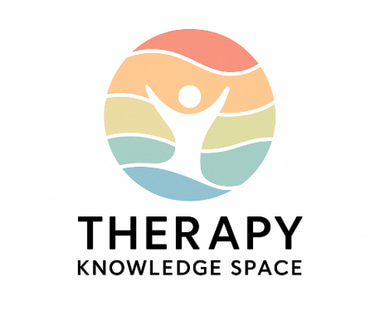Why AI Recording & Transcription Consent Is Crucial for Telehealth Clinicians
Discover why AI recording & transcription consent is absolutely essential for modern telehealth clinicians. Learn how outdated consent forms can leave your practice vulnerable to lawsuits, HIPAA violations, and client mistrust. This must-read post dives into real compliance risks, shocking stats, and best practices every therapist and mental health provider needs to know. Don’t let invisible technology destroy the therapeutic alliance—get ahead of audits, protect your license, and earn client trust with informed, up-to-date AI consent.
6/26/20253 min read


Are Your Telehealth Consent Forms Putting You at Risk? The Legal & Ethical Urgency of AI Recording and Transcription Consent
In 2025, artificial intelligence (AI) is revolutionizing how clinicians document, supervise, and deliver therapy. With AI-driven transcription and ambient recording tools now embedded into many electronic health record (EHR) systems and telehealth platforms, mental health providers face an urgent, and potentially dangerous, new compliance landscape.
Yet most clinicians are still using outdated consent forms—documents written before AI tools even existed in the therapeutic space.
Let us be clear: Using AI to record or transcribe client sessions without updated, explicit, written consent is not only unethical—it may expose you to lawsuits, license complaints, and federal penalties.
The New Reality: AI Is Listening
Ambient listening technology is now available in leading EHRs and telehealth platforms, sometimes activated with just a single toggle. These tools can record every word, analyze tone, tag clinical keywords, and automatically generate documentation.
While this can dramatically reduce documentation time and improve care planning, it also raises urgent legal and ethical questions:
Is your client aware that an AI system is listening, recording, and analyzing their session?
Have they explicitly agreed to it?
Do they know where the data is stored, for how long, and who else might access it?
If the answer is "no" or "I'm not sure," you may be violating HIPAA and placing your license at risk.
Stats That Should Scare You (In a Good Way)
In 2023 alone, the U.S. Department of Health and Human Services (HHS) reported a 36% increase in HIPAA complaints related to improper use of telehealth and recording tools.
70% of therapy clients surveyed in a 2024 mental health tech report said they were "unaware" their sessions might be recorded or transcribed by AI.
Only 14% of clinicians had updated their telehealth consent forms to reflect the use of ambient AI listening tools, according to a 2024 compliance audit by Mental Health Risk Alliance.
These numbers point to one thing: Most practices are flying blind.
What the Law Actually Says
HIPAA, HITECH, and state laws require clear, written consent before any recording or third-party technology accesses protected health information (PHI). AI transcription tools fall under this umbrella, and courts have begun treating them as such.
If your current consent form says something vague like, “Sessions may be recorded for quality assurance,” you are not protected.
You need consent forms that:
Specifically name AI-powered transcription and recording tools
Describe what’s being captured (audio, transcripts, metadata, etc.)
Explain where and how the data is stored, encrypted, and deleted
Inform the client of their right to decline or revoke consent
Ethics, Liability & Professional Risk
Even beyond legal exposure, using AI without consent undermines client trust. Mental health therapy is built on a foundation of safety and informed choice. When a client discovers their session was recorded without their knowledge—especially by a non-human tool—the damage can be irreversible.
Imagine the worst-case scenario:
A client files a licensing complaint against you for secretly recording them.
A malpractice lawyer requests a copy of your AI transcripts in discovery.
Your EHR vendor experiences a data breach, and your clients weren’t informed AI was involved.
These are not hypotheticals. They are already happening.
The Clinical Upside—If You Do It Right
AI tools can be transformative:
Reduce clinician burnout by cutting documentation time by up to 63%
Enhance supervision and case review
Support better treatment planning with longitudinal insights
But this only works if your clients know and agree to it. Proper AI recording and transcription consent empowers both clinicians and clients to fully benefit from new technologies without fear, mistrust, or legal jeopardy.
What You Should Do Now
Audit your current consent forms. If they don’t mention AI, transcription, or ambient recording by name—they’re obsolete.
Implement a specialized AI Consent Form. Make it standalone or include it in your intake packet.
Educate your clients. Explain the benefits of AI tools and offer opt-in options.
Re-train your team. Everyone from front desk to supervisors should understand the technology and how to discuss it.
Prepare for audits. Keep signed copies and ensure your policies align with your practices.
Need Help? We've Got You Covered.
Created by a mental health compliance expert with a legal background, our HIPAA-Compliant AI Consent Forms are designed specifically for today’s telehealth environment. You can purchase:
Recording & Transcription Consent Form (standalone)
Telehealth Consent Form (general compliance + AI clause)
The Bundle – includes both forms at a discounted rate
Don’t wait until you’re audited, sued, or reported. Protect your practice—and your clients—starting today.
Get compliant. Stay ethical. Build trust.
